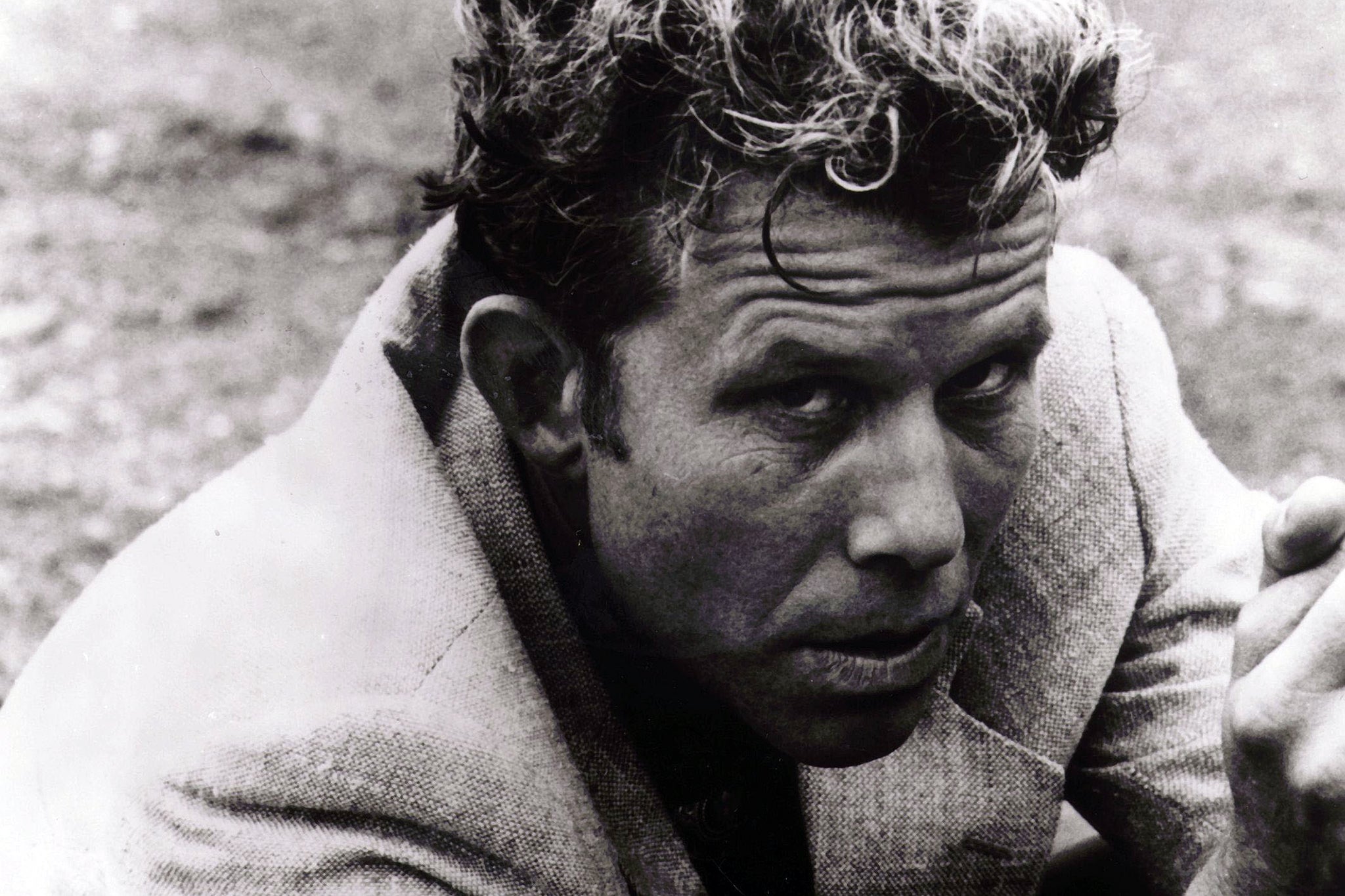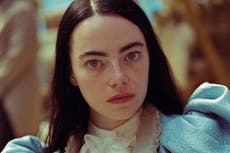Tom Waits at 75: How a music legend became cinema’s great unsung character actor
The gravelly-voiced musician has played Dracula’s minion, a dogged prospector and the Devil himself, finding fans in many of our best living filmmakers, from the Coen brothers to Paul Thomas Anderson. As he celebrates a milestone birthday, Xan Brooks explores his strange, wonderful second career


The best Tom Waits songs play like cult midnight movies, full of wild scenes and strange characters. “Goin’ Out West”, for example, spins the tale of a rough-beast wannabe who’s come to storm Tinseltown. He says he’s going to change his name to Hannibal, “or maybe just Rex”, and brags that his mum used to date Tony Franciosa, a middlingly successful 1960s actor. “I ain’t no extra, baby, I’m a leading man,” he insists as he closes in on Hollywood. But his boasts and his bluster are toxic threats in disguise. Things are bound to turn ugly the moment this chump is turned down. They’ll turn uglier still if he beats the odds and strikes lucky.
Waits is a dab hand at ventriloquising these kinds of outsiders: the lost souls and loose cannons who inhabit America’s fringes. His work is vivid and playful and occasionally downright grotesque. Most of his creations are audible but invisible. Sometimes, though, they break cover and materialise on screen as well.
On Saturday, Waits celebrated his 75th birthday. That milestone is prompting admirers to beat back over their hero’s life and times, toasting a career that’s ambled from boozy barfly laments to impish exotica to a surreal rustic folk style that the man himself dubs “surural”. The fans are focusing on the music, which is entirely right and proper. But Waits’s acting sideline is just as distinctive, inseparable from his albums, and arguably more Waitsian in spirit for being such a secondary enterprise; tucked away in the margins, perpetually bubbling under.
Down the years he has collaborated with Francis Ford Coppola and Robert Altman, Paul Thomas Anderson and Jim Jarmusch. He’s appeared in more than 40 pictures and never hit a bum note. I think he might be America’s great unsung character actor. Unsung, of course, because he’s chiefly known as a singer.
Elvis Presley, Bing Crosby and Frank Sinatra were chiefly known as singers, too. So for that matter are Cher, Lady Gaga, Jennifer Lopez and Beyoncé. But Waits’s acting work ploughs a different furrow. It’s not a brand extension or a takeover bid, because he’s happy to take smaller roles and fit in where he can. Nor does it count as a form of stunt casting. Waits possesses an inimitable gravelled voice and a face made for vaudeville (sandblasted and jug-eared, like a dustbowl Stan Laurel). But he’s a versatile actor who fully inhabits each role. He’s not playing Tom Waits so much as the characters from his songs.
Thinking back, I realise that I encountered Waits as an actor before I knew him as a singer. In Coppola’s 1983 film Rumble Fish, he plays Benny, the scratchy billiard hall manager handing out chocolate milk and telling the kids to mind their language. Waits built the part from the ground up, wrote his own mini monologue on the subject of time (“a very peculiar item,” says Benny) and provided a spry counterweight to the monochrome cool of Mickey Rourke and Matt Dillon. He’s brilliant, too, as the dying innocent in 1987’s Ironweed, equalling and even outshining co-stars Jack Nicholson and Meryl Streep. Waits, Nicholson said at the time, reminded him of a drunk he’d once seen walking through the park with an ice cream cone in his hand. There’s something precarious about his acting style – and something precious about it, too.

He’s a support player, baby, never quite a leading man, and so the default position is to add him to a film like hot sauce to a dish, casting him as bug-eyed Renfield in Coppola’s Dracula, a rabbit-loving serial killer in the caper Seven Psychopaths, or the Devil himself in Terry Gilliam’s The Imaginarium of Doctor Parnassus. But he’s at his best in the quieter, subtler roles, when he’s allowed to be careworn and lean into old age. His flawless turn as the dogged prospector in the “All Gold Canyon” section of the Coen Brothers’ portmanteau western The Ballad of Buster Scruggs remains the closest he’s come to carrying a film single-handed.
I also love his deft performance as Waller, Robert Redford’s bespectacled sidekick in the crime film The Old Man & the Gun. Waller’s a career criminal with the stringent manner of a small-town bank clerk. He’s wry and he’s shrewd and has learned to hate Christmas. His life has been one of half-chances and near misses. Redford’s dashing crook naturally hogs all the limelight. But one feels there’s another, better movie that could have been made about Waller.
I interviewed Waits many years ago, when he was just edging into his sixties, and it was clear he took cinema seriously. He wanted to talk about movies more than he wanted to talk about music. He brought a notebook in which he had written all the films that he loved (these included Putney Swope, The Ox-Bow Incident and Babe: Pig in the City). But he winced at the idea that he might be considered an actor. He didn’t want to be labelled and preferred to stay fluid. Hapless Hannibal or Rex kicks down the door and proclaims his almighty greatness. His creator, though, favours stealth missions and would rather not draw attention. Slip in and slip out. Be an instrument in the mix or part of the grain of the film.

Waits, Neil Young once remarked, is indescribable, unclassifiable, which is to say that he’s a natural-born shape-shifter. “He’s sort of a performer,” said Young. “He’s a singer, actor, magician, spirit guide, changeling.” Waits, for his part, puts it slightly differently. He says he’s like the crooked tree in the forest that bends with the wind and survives the lumberjack’s axe. That accounts for his otherness and explains his longevity. The straight trees are eventually cut down and cleared out for fresh growth, be it in Hollywood or the woods. Whereas, he’s still there with the saplings; growing old, growing strange.
Join our commenting forum
Join thought-provoking conversations, follow other Independent readers and see their replies
Comments


Bookmark popover
Removed from bookmarks